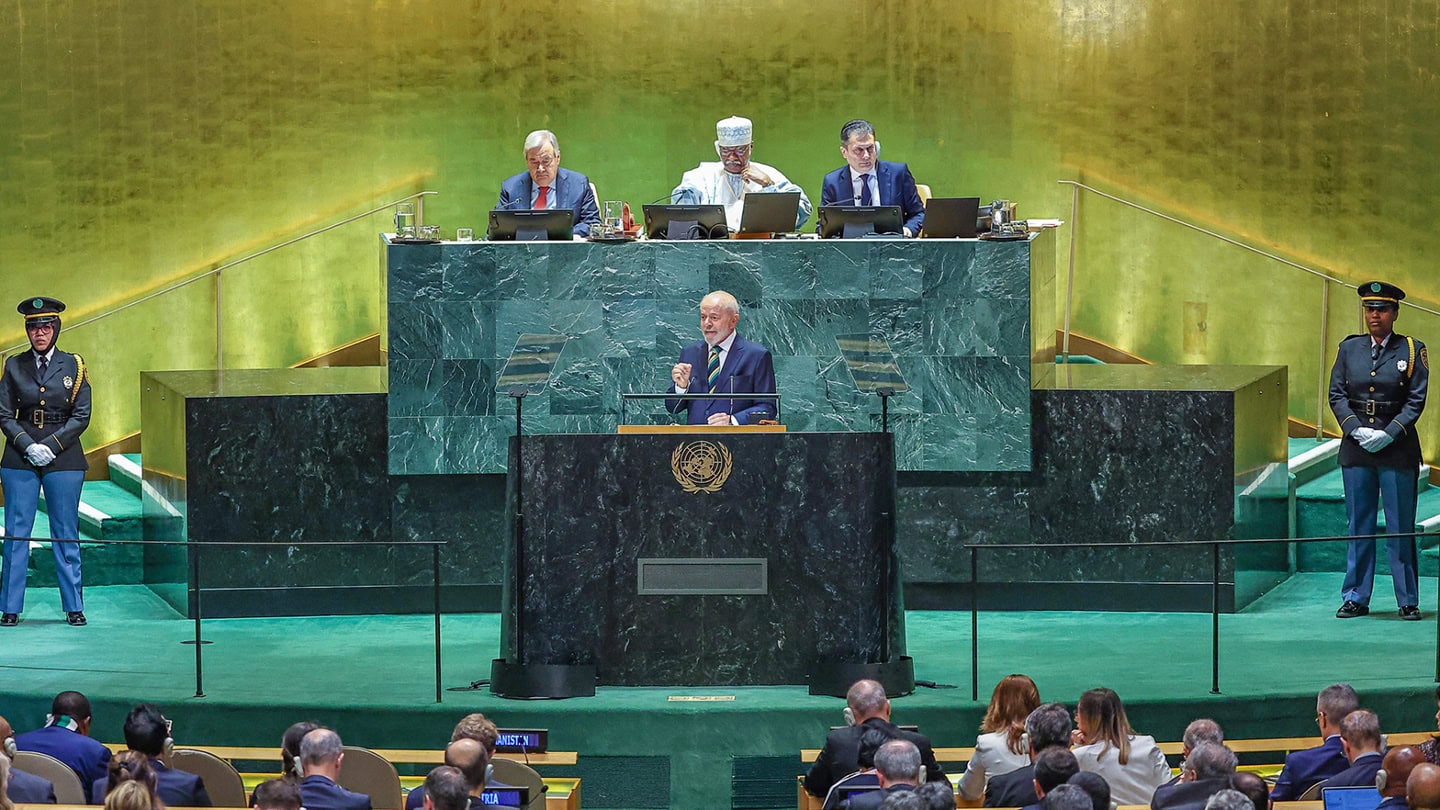President Luiz Inácio Lula da Silva made one of the most compelling speeches of his presidency during the opening of the 79th UN General Assembly in September. Mixing criticism and appeal, his speech exposed the major nations’ inability to come together to face global challenges and highlighted the necessary effort in various sectors to transform the world’s reality. “We’re walking in circles, in between possible compromises that lead to insufficient results,” he stated.
Lula spared no criticism of the current state of global negotiations, including the approval of the Pact for the Future, which was achieved “with difficulty,” revealing the weakening of nations’ dialog capacity. For Brasil’s president, this pact represents the paradox of our time, when fragile and insufficient commitments have become the norm. “We are living in times of increasing anguish, frustration, tension and fear,” he said.
The scenario of international conflicts was the opening of the discourse. Lula pointed out that 2023 saw the highest number of conflicts since the Second World War and global military spending reached the 2.4 trillion dollar mark. Brasil’s president lamented that while this vast amount of money is going to war, millions of people remain hungry and without support in the face of climate change. “The use of force, without the support of international law, is becoming the norm,” he criticized, emphasizing the devastating impact of simultaneous wars in places like Ukraine, Gaza, and, more recently, Lebanon.
Lula also called attention to the humanitarian crisis spreading in the Middle East, especially in Gaza and the West Bank, describing the situation as “one of the major humanitarian crises in recent history.” He lamented the cycle of violence, where “the right of defense has become the right of revenge,” aggravating the suffering of civilians and preventing a ceasefire that could save lives.
Climate Change
Another central theme of his speech was the global climate crisis. Brasil’s president criticized the lack of compliance with climate agreements and the inertia in reducing carbon emissions. He pointed out that 2024 is on course to be the hottest year in modern history and mentioned environmental disasters, from hurricanes in the Caribbean to floods in southern Brasil, as clear examples of perceived impacts. “The planet has had enough of unfulfilled climate agreements,” he stated, stressing that Brasil has assumed its responsibility, reducing deforestation in the Amazonia by 50% and committing to its complete eradication by 2030.
Lula also recalled that Brasil will host COP-30 in 2025, focusing on multilateralism to tackle the climate emergency. He emphasized that Brasil is a leader in the energy transition, with a clean energy mix and major investments in biofuels, renewable energy, and green hydrogen.
For Lula, technological advances must benefit humanity, especially by eradicating hunger and reducing inequality. He pointed out that although Artificial Intelligence offers innovative solutions, these resources are not being properly distributed. For him, nothing is as absurd and unacceptable as the permanence of hunger and poverty at a time when we have so much at our disposal, so many scientific and technological resources, and the artificial intelligence revolution.
Lula invited all countries to join the Global Alliance against Hunger and Poverty that will be launched during the G20 Leaders’ Summit in November 2024 in Rio de Janeiro. The goal is to attract the largest number of signatory countries and international partners committed to creating transformative public policies that can reduce hunger and poverty in the long term. The initiative is open to all countries, not just G20 members, demonstrating the proposal’s inclusive and global nature.
Source: G20.ORG



